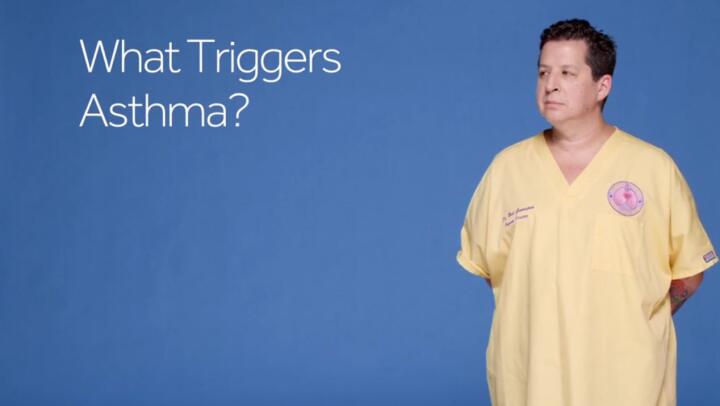
You may be surprised to learn that it’s possible to develop severe asthma as an adult, even if you never had it as a child. Some adults mistake their asthma symptoms for an allergy or a stubborn cold, so the condition goes undiagnosed and untreated.
However, asthma in adults is more serious than in children and about seven times as life-threatening. Learn more about severe adult asthma for the proper diagnosis and care.
Mild and Severe Adult Asthma Symptoms
Asthma is a chronic inflammation of the airways that makes it hard to breathe. The cause of asthma isn’t fully understood, but it does tend to run in families. There is not yet a cure for asthma, but it can be managed effectively with medication and by avoiding irritants or “triggers.” Some irritants such as animal dander and pollen are allergy related. Other irritants such as smoke and strong fumes are not allergy related. Less common triggers are aspirin (aspirin-induced asthma) and exercise (exercise-induced bronchoconstriction).
Symptoms of asthma in children and adults are the same, but in children, they tend to come and go. In adults, symptoms tend to be more persistent.
Mild symptoms of asthma include:
Dry coughing or wheezing
Tightness in the chest
Severe symptoms of asthma, also considered an asthma attack, include:
Skin turning pale or blue
Skin around the chest or ribs sucking in
Rapid nostril movement
Loss of consciousness
Seek immediate medical attention for severe asthma symptoms.
You may find your symptoms are worse at night. As many as 75% of those with asthma have nocturnal asthma, with asthma attacks between 2-4 a.m.
How Severe Adult Asthma Is Diagnosed
Your doctor will likely start by asking you questions about your symptoms and your medical history. Come prepared to your appointment with information about when you tend to have symptoms and how often. Try to identify any triggers in your home or work environment. Think about family members who may have had similar symptoms. Be sure to tell your doctor about any medications you’re taking. Your doctor may also ask about lifestyle factors that can aggravate asthma such as smoking and obesity.
Next, your doctor may perform a physical exam, checking your nose and throat and listening to your breathing through a stethoscope. One or more of these common lung function tests may also be performed:
Spirometry, where you breathe into a spirometer that measures how much air you can breathe in and out.
Peak airflow, where you breathe into a peak flow meter that measures how fast you can exhale.
Trigger tests that expose you to asthma triggers to see if they cause symptoms.
If you do have asthma, it will be assigned one of four levels:
Severe persistent asthma. You have symptoms every day, and they wake you up every night.
Moderate persistent asthma. You have symptoms every day, and they wake you up at least once a week.
Mild persistent asthma. You have symptoms two or more days a week, and they wake you up three or four nights a month.
Intermittent asthma. You have symptoms no more than once or twice a week, and they wake you up no more than two nights a month.
Shared Symptoms of Adult Asthma and Heart and Lung Problems
Sometimes, a cough is just a cough. Other times, symptoms of a cold or allergy can indicate asthma or any one of the following conditions, especially as we age:
Chronic obstructive pulmonary disease (COPD), including chronic bronchitis and emphysema
Asthma-COPD overlap (when someone has both asthma and a form of COPD)
Heart failure
Working closely with a doctor to maintain our lung and heart health becomes increasingly important as we grow older. Your doctor can recommend lifestyle changes and prescribe effective medication as needed. The first step is reaching out to your doctor for an in-depth conversation about your symptoms so you can receive a proper diagnosis and work together on the best treatment plan for you.






















